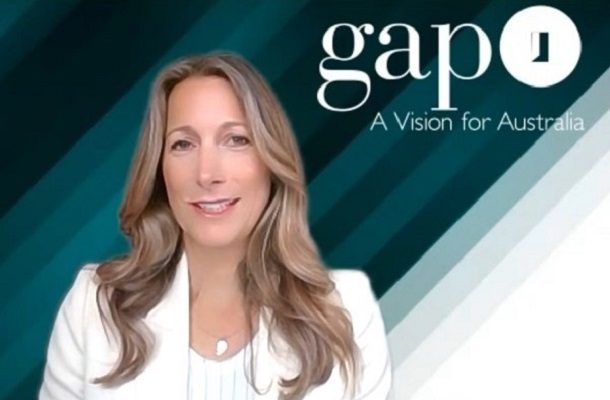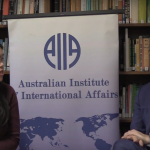Global Access Partners (GAP) Year in Review

Each year I look back and reflect on the year that was.
It’s the only time I get to stop and review whether the plans we had in January played out in reality.
Unlike other years, 2021 has been one where the strategy was to “go with the flow.”
At the beginning of the year, we had a feeling that ‘anything is possible’ and that we would be taking every opportunity that came our way.
2021 has felt like a game of musical chairs. The music kept changing, the dance moves kept changing, there were only a certain number of chairs available to land, on and we didn’t know if we would end up on the floor.
On the upside, there was always some sort of music playing, and we learnt a new way to dance to it.
Sitting here, mid-December, I can look ahead at my 2022 calendar, and it is already filling up fast. New projects, new taskforces, new people and new challenges are finding a slot in my meticulously mapped out days.
A 45-minute call with Sara and Jeroen from the OECD in Paris to discuss the Pacific governance taskforce, a one-hour meeting with the Nobel Foundation team in Stockholm to plan a partnership, 90 minutes with The Pacific and Small Island Nations Summit Steering Committee to determine how this year’s event can be built on, to produce the best results for the 2022 Summit.
On reflection, 2021 was all about building GAP’s international network and placing Australia at the centre of global thinking. The irony is, this was the first year in GAP’s history that the GAP team did not fly overseas or host any international visitors. The new ‘dance’ required us to develop new ways to connect digitally with our partners and members all over the world.
While the word ‘pivot’ must be the most overused word in 2021, we really felt the meaning of it as we adapted to an ever-changing and unpredictable environment.
GAP 2021 highlights
Each year we run our flagship GAP Summit. In 2020 the topic was Resilience and throughout 2021 we progressed the Summit’s central recommendation – to establish an independent National Resilience Institute (NRI), jointly funded by philanthropy, federal and state governments, and industry.
GAP has produced NRI proposals to both federal and state governments and has been in conversation with Resilience NSW and the Department of the Prime Minister and Cabinet. The GAP Taskforce on National Resilience and its various workstreams released nine reports across various sectors, including the final paper ‘Australia – a complacent nation’. Taskforce members agreed to continue as a group to work together on the establishment of the NRI.
The 2021 Vision for Australia Summit on the New Normal on 8 October brought together 120 Australian and international thought leaders and produced two key recommendations: to establish a cross-sector industry-led taskforce on Jobs and Skills to work with government on solutions to current skills gaps and labour shortages, and a ‘second track’ taskforce to drive Positive Leadership across business, education and government to inspire positive embrace of inevitable global change. These initiatives will be progressed in 2022.
Our work in the Pacific through ICDP has grown exponentially, and for the first time we hosted the GAP Summit for the Pacific and Small Islands Nations. We are thrilled with the recommendations that came out of the dialogue which include a joint project with the OECD focusing on governance across the Pacific.
Our work in Early Childhood Education has taken a personal turn, with my family starting the Fritz Family Foundation which focuses on providing good quality early childhood education for all. Our first activity has been the launch of a facilitated playgroup in Mittagong (regional NSW), and we look forward to scaling up this programme by offering wrap-around services for children and families across the state and nation.
GAP’s work in Health sector reform continues through the GAP Standing Committee on Health. The first microcredential course in telehealth for medical professionals, developed by the University of Sydney with the financial support from GAP, welcomed its first cohort of students on 20 September.
Following this success, we are planning similar micro-courses in community resilience, cybersecurity, aged care, volunteer training in walking track maintenance, development finance, and more.
The GAP International Taskforce on SMEs now involves the Australian Small Business and Family Enterprise Ombudsman, as well as representatives from the OECD, World Bank and INSME. The group’s focus is Environment, Society and Governance (ESG) factors and how an integrated ESG framework can be developed for SMEs.
GAP’s Standing Committee on Productive Ageing has become part of the NSW Government’s 2021-31 ageing strategy.
Our Journal on Behavioural Economics and Social Systems (BESS®) is now in its fourth year, with the next issue coming up in February.
As I compile this list which only touches on a few of the achievements of 2021, I am in awe of our vast GAP Network and its contribution to creating a better world.
Our small and diligent executive team managing GAP activities has grown this year with the addition of the wonderful Alison Sheehy and Lara Pagola.
Our success lies in the ultimate collaboration between the thousands of individuals who make up the GAP Network.
Thank you for your commitment to GAP this year, and I look forward to working with each of you in 2022.
Stay healthy and safe.
From Catherine and the team at GAP

Catherine Fritz-Kalish is the co-founder and Managing Director of Global Access Partners (GAP) and Director of the International Centre for Democratic Partnerships (ICDP) and ICDP Foundation. She also holds Board positions for a number of not-for-profit organisations.













